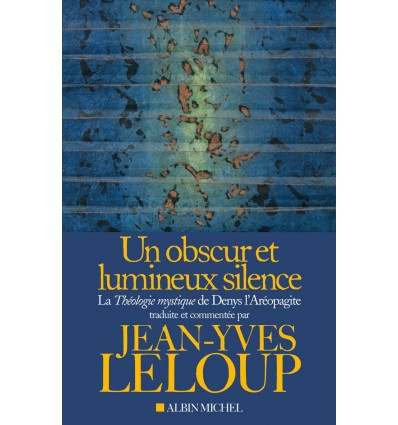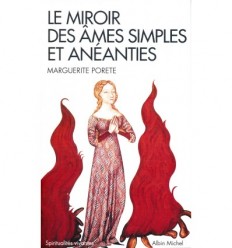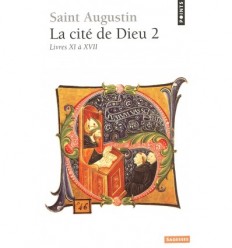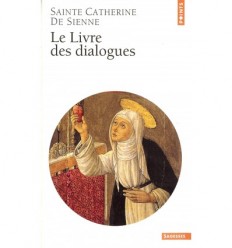Humanism • Spirituality • Well-being
-
0
Product
Products
No products
To be determined
Shipping
0,00 €
Total
Prices are tax included
Product successfully added to your shopping cart
Quantity
Total
There are 0 items in your cart. There is 1 item in your cart.
Total products
(tax incl.)
Total shipping (tax incl.)
To be determined
Un obscur et lumineux silence
LA THEOLOGIE MYSTIQUE DE DENYS L AREOPAGITE
Jean-Yves Leloup's commentary of Dionysius the Areopagite's Mystic Theology
3 Items
In stock Delivery 2 to 4 days
Description
This book is dedicated to the Mystical Theology of sixth-century author Dionysius the Areopagite, and the notion of unknowing in spiritual traditions. Jean-Yves Leloup presents an interpretation and commentary of the Mystical Theology and a selection of seven letters of Dionysius, all of which reflect an internal experience; he orients them first in the tradition of the Greek Fathers, then in the Latin world, and then in the Middle Ages. In this way, he introduces Dionysius's philosophical and Christian literature, in which Dionysius contemplates the incomprehensibility of God and the knowing of Him through unknowing. Dionysius's work "celebrates the apparent and hidden Reality, manifest and non-manifest, source of perplexity and certitude, of hope and beatitude", in a "duality inseparable from emptiness and fullness, ecstasy and nostalgia". Starting from Dionysius's "obscure and luminous silence", Jean-Yves Leloup studies the "variations". Suggesting "that in every spiritual tradition there can often be found an obscure and luminous space, a silence, a Reality infinitely close and yet always elusive", he creates links with other mystics and other spiritual traditions. Dionysius's Mystic Theology is compared not only with the writings of Hadewijch d'Anvers, Meister Eckhart and Saint John of the Cross, but also with Jewish and Islamic traditions, and further with Shankara, Nagarjuna, Buddhism and Tao... The author believes that there is fertile ground for encounters and possible unity between these different traditions.
Characteristics
| Author | JEAN-YVES LELOUP | |
| Editor | ALBIN MICHEL | |
| Number of pages | 180 | |
| Type of book | Broché | |
| Language | French | |
| Dimensions | 14,5 x 22,5 |
Mystiques chrétiens
-
Books
- Western traditions
-
Western mystical authors
- Bacon Francis
- Boehme Jacob
- Bruno Giordano
- Davy Marie-Madeleine
- Desjardins Arnaud
- Dürckheim Karlfried Graf
- Eckartshausen Karl von
- Lévi Eliphas
- Maier Michael
- Maître Philippe
- Mystiques chrétiens
- Papus
- Paracelse
- Pic de la Mirandole Jean
- Saint-Yves d'Alveydre Alexandre
- Schwaller de Lubicz René Adolphe et Isha
- Sédir
- Souzenelle Annick de
- Steiner Rudolf
- Swedenborg Emmanuel
- Teilhard de Chardin, Pierre
- Vinci Léonard de
- Oriental traditions
- Oriental mystical authors
- Other traditions
- Religions
- Symbolism - Wisdom- Spiritual practices
- Philosophy- Utopias
- Prayer - Meditation- Visualisation
- Science and spirituality
- Gift books
- Arts divers (Peinture - Sculpture - Architecture - Danse ...)
- Music
- Novels - Tales - Poems
- Biographies
- Audiobooks
- Health
- Psychology
- Inner fulfilment
- Children' s books
- Death - NDE - Palliative care (support to the terminally-ill)
- Reincarnation - Karma
- Ecology - Nature
- Feng Shui - Geobiology
- Tarots - Pendulums
- Foreign mystical literature
- Coffee-table books
- Rosicrucian books
- Martinist books
- Incense
- Ritual objects
- Music
- Health and well-being
-
Gift Ideas
- Traditional objects
- L'esprit de la Chevalerie &
- Nature
- Terrestrial, celestial, and planetary globes
- Le plaisir d'écrire
- Postcards - Stationery
- Candles - Candle holders - Candle snuffers
- Parfums d'intérieur
- Jewellery
- Home and garden decoration
- Children
- Divinatory arts
-
Noël 2025
- Hildegarde de Bingen
- Lumières du Moyen Âge
- L'esprit de la Chevalerie
- La quête de la Lumière
- Beaux-Livres
- Le plaisir de lire
- La méditation
- Le jardin secret
- Les murmures de la nature
- La langue des oiseaux
- Beauté de l'univers
- L'âme de la rose
- Encens rosicrucien
- Encens divers
- Rêves d'Orient
- L'Égypte, terre de Tradition
- Le monde des senteurs
- Bijoux
- L'enfance
- Noël
- Cartes de fin d'année
- Rosicrucian and Martinist items
from 95€
change your mind
payment












Follow us